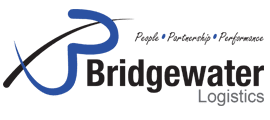The benefits of outsourcing logistics to a specialist have been widely documented. However, many businesses still grapple with deciding who to appoint to provide critical transport logistics services.
“Complicating this process is the fiercely competitive nature of the industry,” Quinton de Villiers, managing director of Bridgewater Logistics, says.
“It comprises large third-party logistics (3PL) providers that have chosen to specialise in specific fields and charge a premium for this expertise through to those many small owner-operators who are willing to provide their services at a vastly reduced rate. However, there are many considerations that will help businesses make an informed decision on whom to partner to help drive efficiencies in their supply chains.”
De Villiers suggests businesses first establish a team dedicated to 3PL evaluation. It should comprise representatives from the finance, supply-chain and logistics, information technology, sales and purchasing departments. Their decision-making processes should be guided by what is considered to be the most important requirements of their client base.
In addition to inspecting the 3PL’s portfolio of related clients and businesses, the team also needs to consider the potential supply-chain partner’s track-record in allied industries. Importantly, it will want to know whether the 3PL has the necessary expertise to provide consistent efficiencies and reliabilities.
He says that a reputable 3PL will also have strong references and “glowing reviews” from its clients. Warehouse security, technology, dependability and flexibility will be among the many standout traits of the service that has been provided to other companies.
De Villiers warns that a decision to appoint a 3PL transcends price. This has often clouded strategic decision making, considering that a suitable partner will be able to add value beyond the cost of its service.
“The team also needs to consider the financial status of the 3PL as this has a direct bearing on the sustainability of transport and logistics operations. There has been a lot of cost-cutting in the industry, especially during the recessionary economic environment. Due diligence is, therefore, an imperative, and should include assessing whether the rates of the 3PL will cover the contract period. No business wants to appoint a new service provider in the first few months of the contract as this will disrupt operations.”
Moreover, a suitable transport and logistics partner is scalable. It will be able to meet clients’ needs, both in terms of growth and contraction as a result of seasonality or customer demand.
“Once the top 3PLs have been selected from the various bids, management should visit their sites and arrange meetings with top representatives. Detailed reviews of the 3PL’s finances and service offering will help ensure a very positive outcome,” the managing director concludes.


